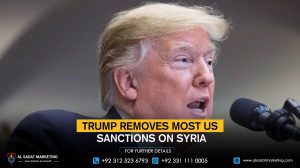According to four people familiar with sensitive intelligence shared inside the US government, intercepted contacts among senior Iranian officials indicate that Tehran viewed this month’s US airstrikes on Iran’s nuclear sites as less devastating than expected.
Iranian officials speculated why the American strike, which was ordered by President Donald Trump, wasn’t as devastating as anticipated during these private discussions, which were not meant for public release, according to the Washington Post. The people, who wished to remain anonymous because the information was classified, claimed that these intercepted exchanges cast doubt on the Trump administration’s narrative, which has presented the mission as a complete success.
The operation “completely and totally obliterated” Iran’s nuclear program, according to an earlier statement by President Trump.
Although the existence of the intercepted intelligence has not been denied by his administration, Tehran’s ability to quantify the damage done to the three nuclear installations targeted in the attack, Fordow, Natanz, and Isfahan, has been questioned.
“The Washington Post’s publication of out-of-context leaks is shameful because it is assisting people in committing felonies,” said White House Press Secretary Karoline Leavitt. It is absurd to assume that anonymous Iranian officials are aware of what transpired beneath hundreds of feet of debris. They have finished their nuclear weapons program.
The majority of military analysts concur that the operation used substantial American weaponry, including Tomahawk cruise missiles and 30,000-pound bunker-buster bombs, which caused severe damage.
The recovery time for Iran is still up for question, though, particularly in view of reports that indicate the country transferred a large portion of its enriched uranium stockpile before the strike. Furthermore, the primary subterranean structures may have remained mostly intact, despite reports that two of the facilities’ entrances were blocked.
Critical infrastructure, such as Iran’s metal conversion factory, which is necessary for producing nuclear bombs, was destroyed, according to a Trump administration official. We have demolished their metal conversion plant. We are certain that our weapons were delivered exactly where we requested and produced the desired outcome,” the official stated.
According to reports, CIA Director John Ratcliffe told legislators in private briefings that important nuclear infrastructure had been destroyed.
He said that Iran’s nuclear program might be delayed for years just by the destruction of the metal conversion facility. Ratcliffe further informed lawmakers that at the time of the strikes, the majority of Iran’s enriched uranium was probably kept in storage at Isfahan and Fordow.
In response to questions from The Washington Post, a senior US intelligence official warned against relying too much on one intercepted communication. “While signals intelligence is valuable, the complete picture of intelligence is not reflected by a single slice of signals intelligence.”
“An intelligence assessment, which considers a body of evidence with multiple sources and methods, is not the same as a single phone call between anonymous Iranians,” the official stated. A sizable amount of the intelligence that President Trump receives for his daily briefings is signals intelligence, which is obtained from phone conversations, emails, and other electronic communications. Experts caution that although such intelligence is potent, it occasionally lacks context and has to be supported by other data.
Media reports that cast doubt on the operation’s success have infuriated Trump. He accused Democrats in a Truth Social post of disclosing early Defense Intelligence Agency (DIA) evaluations that suggested strikes could have only postponed Iran’s nuclear development by a few months. He called for the prosecution of individuals who leak information.
Trump denied in a pre-recorded interview with Fox News that Iran had shifted its uranium stockpile in preparation for the attack. He stated, “I don’t believe they did.”
“No, I don’t believe they did. It’s extremely risky and difficult to perform. It was only at that moment that they realized we were approaching.
Some of Iran’s centrifuges were still operational, according to the DIA’s preliminary assessment, which was made public 24 hours after the operation. It did stress, though, that a thorough damage assessment would require days or weeks to finish.
The Trump administration has persisted in its story of resounding triumph in spite of this. The hit, according to Defense Secretary Pete Hegseth, was “the most complex and secretive military operation in history,” and it had accomplished all of its objectives.










